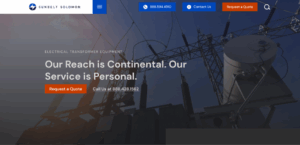James Barrett, chief innovation officer for Turner Construction, had grown tired of startups telling him that technology-based solutions to the firm’s problems were not available.
“I got frustrated over the years, dealing with the random, unpredictable process of hoping the right startup would show up at the right time with the right path to the right problem,” he said.
Michael Yang, managing partner for technology investment firm OMERS Ventures, had a solution.
“You know what?” he said to Barrett. “Here at OMERS Ventures, we have had entrepreneurs in residence who have co-developed and incubated businesses from whole cloth with corporations, to seize upon their pain points and the white space they see in the market.”
Barrett was intrigued, and Turner’s Entrepreneur-In-Residence program, in partnership with OMERS Ventures, was born. Instead of waiting for startups that may or may not present compelling technology solutions, Turner and OMERS are seeking out promising entrepreneurs and giving them the time and resources to build and capitalize on solving real problems because, as Barrett pointed out, “the foundation of any good startup is the founder.”
Both partners dug into their deep Rolodexes to let people know they were interested in meeting with anyone who had aspirations to start a tech company serving the construction industry. After a series of extensive interviews, they brought on Adam Fischer and Luke Tucker, gave them monthly stipends, access to Turner’s employees, subcontractors and suppliers, and set them loose to find problems technology could solve. OMERS will have the right of first refusal to invest in the startups that result.
Fischer and Tucker are “kind of our trial balloons and guinea pigs,” Yang said. “There’s not a definitive timeline, but they do have a series of milestones and gates to track their progress and make sure they have motivation and a sense of urgency — which they naturally do, because being founders, they have that personality trait.”
Finding the pain points
Austin, Texas-based Tucker recently left his role as director of product management for Workrise, where he oversaw the launch of a mobile app and a client-facing web app for small and midsize subcontractors, which he said are “really underserved from a technology perspective.” He was interested in delivering a holistic communication protocol that subcontractors could run their businesses on, but those contractors are “not necessarily on the Internet looking for how to solve their problems,” he said.
Luke Tucker
Courtesy of Turner Construction Co.
“The critical strategic question was, ‘What’s the wedge? How do you get in the door?’” Tucker said. “That was the question I really wanted to answer in this program, and what was so exciting to me was the fact that Turner has this extensive network of subcontractors who are much more willing to take my phone call. And that’s played out.”
Through the program, Tucker has had instant access to conversations that would have taken weeks or months to materialize — if they materialized at all. He’s been able to talk with Turner employees to understand how general contractors think about subs. “It was the fastest path to get to that full 360-degree view,” he said.
Based on all these conversations, Tucker is developing a cash flow structure similar to DailyPay, giving subcontractors access to earnings in real time rather than waiting the traditional 30 to 90 days. If all goes as planned, he’ll launch the company in about two months.
When San Francisco-based Fischer heard about the Entrepreneur-In-Residence program, he had just left Monetics, a debt-management platform for commercial real estate that he founded in 2019, after it was acquired by Derivative Path.

Adam Fischer
Courtesy of Turner Construction Co.
“Jim and Michael’s whole bottoms-up approach of really identifying the pain points to solve was what caught my eye,” Fischer said.
Given his background in fintech, Fischer is identifying problems around construction costs, insurance, data management and profitability “because there are a lot of pain points on the financial side of things,” he said.
“I’m still going through the process and asking a lot of questions,” he said. “Is the pain point big enough? Can we actually solve it with technology? We’re doing a bunch of experiments, and we’re going to get to one that will be like, that’s it. The potential customers and people in the industry that we spoke with will be like, ‘Hey, when can I get signed up?’ That’s how we’ll know we found the right pain point.”
Turner — the country’s largest contractor by revenue — and OMERS continue to recruit entrepreneurs, and Barrett said they’re reaching out to historically Black colleges this fall because “there’s still lack of representation” in the construction industry.
Barrett also hopes to tap into venture capital funds from the ESG and climate tech sectors.
“It’s a great model from an investor standpoint because we’re increasing the probability of that investment delivering a significant return,” Barrett said. “That’s why OMERS Ventures has really focused a lot of time and attention to this and other VCs have expressed interest as well.”



Responses